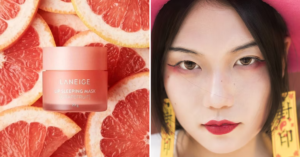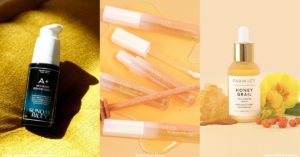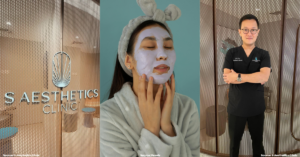Body
National Skin Centre: Affordable Services With High-Quality Expert Dermatologists
Many of us are guilty of taking our skin health lightly- thinking if there is no real concern then it’s...
By: Beauty Insider Journalist / January 24, 2022

Many of us are guilty of taking our skin health lightly- thinking if there is no real concern then it’s not time to sound the alarms just yet. However, many experts say that if you have gone a day in your life under the sun then you need to go get your skin checked. Despite that, skin cancer screening isn’t the only concern you need to look out for but so much more like acne, eczema, etc. Therefore, in Singapore, one of the best dermatologist centres you can go to is the National Skin Centre so let’s talk about what they offer.
Dermatology is a branch of medicine that focuses on skin problems. Dermatology also encompasses problems that affect your nails, hair, and the delicate lining of your eyelids, nose, and mouth, in addition to your skin. The biggest organ in your body is your skin. Nerve endings, sweat glands, hair follicles, pores, blood arteries, and a variety of other structures may all be found within it.
It is critical to your general health that you take care of it. While general practitioners and internal medicine experts may identify and treat these problems, dermatologists have a better understanding and more expertise. Many primary care physicians will refer their patients to dermatologists for treatment.
A dermatologist is a specialist who specialises in the diagnosis and treatment of diseases of the hair, skin, and nails. Mucous membranes, or the delicate tissue that lines your nose, mouth, and eyelids, are also treated by them.
Find out more about the best dermatologist in Singapore.
Contents
What Is The National Skin Centre?

The National Skin Centre (NSC), a part of the Ministry of Health-owned National Healthcare Group (NHG), is an outpatient speciality dermatological centre. It also has some of Singapore’s top dermatologists. Hundreds of patients are seen by a team of dermatologists every day to treat a range of skin disorders. They also provide specialised dermatological treatments, teach medical students and postgraduates, and conduct dermatology research as a tertiary health care centre.
If you’re a Singaporean or a Permanent Resident with a recommendation letter from a Polyclinic or a SAF medical centre, you may be eligible for discounted care at the NSC. Non-subsidised clinics are also open to all Singaporeans, Permanent Residents, and overseas patients.
Address: 1 Mandalay Rd, Singapore 308205
Operating Hours: Weekday (8am – 5pm), Weekend (Closed)
Contact: +65 6350 6666
What Specialty Clinics Do They Provide?

- Acne Clinic
- Contact Dermatitis and Joint Occupational Dermatoses Unit
- Cutaneous Infection Unit
- Dermatological and Laser Surgery Unit
- Drug Eruption Clinic
- Eczema Clinic
- Hair and Nail Clinic
- Immunodermatology Unit
- Itch Clinic
- Lymphoma Clinic
- Paediatric Dermatology Clinic
- Pigment Clinic
- Photodermatology Unit
- Psoriasis Unit
- Senior Consultant Clinic
- Skin Health Clinic
- Skin Cancer Clinic
- Urticaria and Angioedema Clinic
- Wound and Ulcer Clinic
Why Should You Go See A Dermatologist?
Severe acne that seems to not go away
Acne is the most common skin problem on the planet. It creates a variety of facial blemishes. Whiteheads, blackheads, pimples, and deep cysts are among them. These develop when the skin’s oil glands create excessive amounts of a material called sebum.
Pores become clogged as a result of it. Bacteria might also be to blame. Acne is more frequent among teens, although it may affect anybody at any age. The face, neck, back, chest, and shoulders are the most common places for blemishes to occur.
Although acne isn’t life-threatening, it can be distressing. It can potentially create lifelong scars if not treated properly. Over-the-counter and prescription lotions and gels, oral medicine, chemical peels, and laser treatments are all options for treatment.
Dry, painful, scaly skin that blisters often
Eczema is a word that refers to a group of chronic skin disorders that involve skin inflammation. It may be extremely inconvenient and emotionally draining. It frequently results in skin that is red, puffy, dry, and itchy.
Atopic dermatitis is the most prevalent kind of eczema. This is more common among infants and children. A rash on the cheeks and other regions of the body may appear in children.
The rash has the potential to release liquids. Itching can make it difficult for children to sleep. Certain tests and a skin check can help dermatologists identify eczema.
Irritating scalp that causes immense flakiness
Psoriasis is caused by an immune system malfunction. Skin cells develop excessively fast as a result of this. They then build up on the skin’s surface. Plaques are the name for these patches.
They have silvery scales and might be thick and crimson. They might itch or cause pain. Elbows, knees, legs, face, and scalp are the most common places where they occur. They can be found on the bottoms of the feet at times.
They can appear on the fingernails, genitals, or within the mouth, but this is a rare occurrence. Dermatologists can detect psoriasis by examining a sample of skin under a microscope.
Psoriasis is a long-term illness. Creams can be used to soothe and repair the skin. Oral medicine to dampen the hyperactive immune system may also be used as part of the treatment.
Discovering a mole that appeared out of the blue
The most frequent kind of cancer is skin cancer. It’s also the simplest cancer to treat if caught early. Melanoma, on the other hand, is the most serious kind of skin cancer. It has the potential to be fatal.
A dermatologist appointment should be prompted by a number of warning indicators. Skin growths that fluctuate in size, form, colour, thickness, or texture are among them. An uneven growth broader than a pencil eraser is a major melanoma warning indicator.
Check places on your skin that scab, crust, itch, pain, or bleed on a regular basis with a dermatologist. Check-ups on a regular basis are also essential. A dermatologist should inspect your skin for indications of skin cancer at least once a year.
















